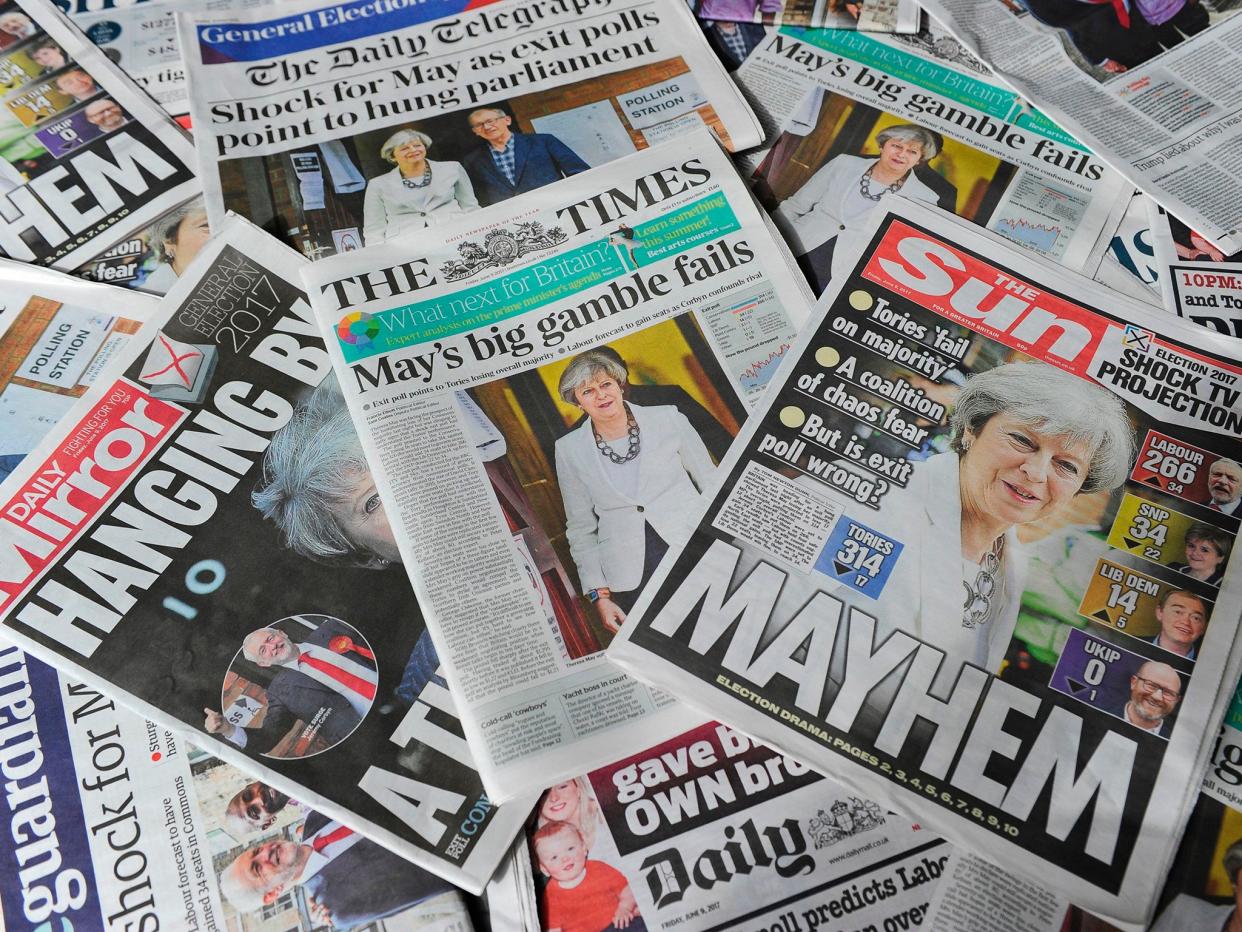The freedom of the press in the UK has declined dramatically – threatening the basis of our democracy

What does Britain stand for? With Brexit approaching, an answer to that question feels more urgently needed than it has for some time.
Ask a hundred people and you might expect to encounter some recurring themes. Democracy perhaps? What about fairness? Liberalism, tolerance and humour might get a look in. The stiff upper lip might still be mentioned by a few, as might queueing. What about free speech? We are, after all, a nation that apparently likes to speak its mind.
Freedom of speech can mean all sorts of things though. And concepts of safe spaces and no-platforming have led many to question whether the right not to be offended has come to be a greater concern for many of us than the right of even those with deeply offensive views to express them.
The news media, in its many and varied guises, has often been regarded as the symbol of Britain’s commitment to free expression. Elements of it may have been rambunctious but better that than being cowed – or, even worse, dull.
Social media’s rise has made the role of the traditional media arguably less emblematic. Indeed, the more ardent critics of the now patronisingly acronymed “MSM” have sought to present it as merely part of the mysterious “establishment” – and not really independent, or free, at all.
Nevertheless, it ought to be a matter of national shame that in this year’s World Press Freedom Index, compiled by Reporters Without Borders, the UK has fallen to number 40 in the global rankings, below the likes of Ghana, Lithuania, Uruguay and Jamaica. We are one of the worst performing countries in Western Europe.
Among other things, the fall takes into account proposals to replace the Official Secrets Act with new legislation that might see journalists penalised for obtaining leaked information; as well as threats from ministers to limit the use of encryption tools such as WhatsApp; and restrictions placed on journalists’ access to political campaigns during the 2017 general election.
It should go without saying that the media must be accountable for its actions. There have been times in the past when some sections of the press failed to meet their ethical and legal responsibilities, as became clear during the Leveson inquiry and associated legal claims over phone hacking.
It’s also true that journalists and editors sometimes make misjudgements and mistakes. Just today, The Times has been rebuked over its story of last year that alleged Tower Hamlets council had placed a Christian child with Muslim foster parents, to the child’s detriment.
Yet the media continues to expose wrongdoing and to raise awareness of important issues daily – from the Windrush scandal to antisemitism in the Labour Party; and from tax-avoidance schemes to widespread sexual abuse of children in towns such as Rotherham.
Thanks to changing consumer habits, and to the dominance of big tech firms, such as Facebook, much of the traditional media already faces significant challenges to existing business models. In many respects, it is rising to those challenges.
But as the Reporters Without Borders rankings show, press freedom is under pressure from a political discourse in which some of the loudest voices are antagonistic.
The Data Protection Bill currently going through parliament has been used by press critics as a vehicle to promote changes to the law that could have a further, serious impact on media organisations.
Aside from raising the spectre of another time-consuming, Leveson-style inquiry into the press’s use of data (no mention of big tech’s use of data, mind you), amendments introduced in the Lords seek to make publishers liable for picking up both sides’ costs in any data protection cases brought against them – unless the publisher agrees to be regulated by a body approved by an official panel. Such measures are not only anathema to press freedom, but also to natural justice.
Whether the amendments pass into the statute books depends on MPs. The Labour Party is committed to pushing for a Leveson-esque inquiry (despite the fact that the purpose of the bill is to update data protection laws in any event); many within the party’s ranks also back the proposal to change the costs regime in privacy cases.
For those who have been on the receiving end of critical – and perhaps erroneous – media coverage, that attitude is perhaps understandable. But grudges against specific outlets could easily end up causing significant harm across the journalistic board if the amendments succeed.
Arguing for a free press is not, as some would have it, the same as arguing for a free pass. But it is time politicians from all parties – as well as those who dismiss the “mainstream media” as a whole because they dislike the political standpoint of a particular newspaper, or because journalists sometimes err – understood the perils of the current, anti-media narrative.
As we begin to consider what vision of Britain might emerge after EU withdrawal, now is the time to remember that press freedom is something that is integral to democracy, not an easily dismissed afterthought.

 Yahoo News
Yahoo News 
